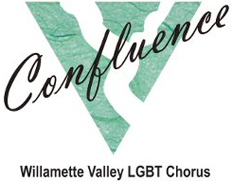Editorial
Bishops generally are admirable people, but they also are human, and occasionally they behave badly. Sometimes forgiveness and repentance are insufficient to maintain good order, and the church has an ecclesiastical version of a judicial system to cope with such episodes.
In recent years, that system generally has led to appropriate results when bishops have been in the dock. But we can’t shake the feeling that the Diocese of Florida may be an exception.
In Los Angeles, the late Bishop J. Jon Bruno earned his suspension by secretly agreeing to sell a viable congregation’s church — while he already was on trial for improperly attempting to sell the same church.
In Albany, Bishop William H. Love was allowed to resign after a court found he violated his vow of obedience by refusing to make provision for same-sex marriages in accordance with Resolution 2018-B012.
In Florida, however, unresolved accusations against Bishop Samuel Johnson Howard have torpedoed the career of the person the diocese twice chose to succeed him. In an exceedingly rare practice, a majority of bishops and standing committees withheld their consent, thereby voiding the election of the Rev. Charlie Holt. The alleged sins of the father have been visited on the son.
A church court investigating charges of election irregularities essentially accused Bishop Howard of rigging the voting pool by discriminating for years against LGBTQ clergy — an accusation Howard vehemently denies. “Given that the asserted candidate-elect only secured the majority needed in the clergy order by one vote, the potential impact on the election of denying the right to vote in at least three instances is plain,” the court wrote.
Except in reality, the election was not close. Holt achieved an outright majority in the clergy order by only a single vote — but he won nearly twice the votes of the candidate who finished second. If Holt had fallen one vote shy instead of prevailing by one vote, there would have been a subsequent ballot. The third-place finisher has said he would have withdrawn from the race, and he believes most or all of his conservative backers would have migrated to Holt.
So: Holt was the clear choice of the diocese, although a substantial minority opposed him because of his belief that marriage should be a covenant between a man and a woman. But he pledged that he would do nothing to stand in the way of any priest who wanted to perform a same-sex marriage in accordance with Resolution 2018-B012.
Holt is an affable man, an experienced mediator, and warmly endorsed by his former bishop, despite their theological disagreements. He made some tone-deaf comments during walkabouts, and forthrightly apologized for the harm caused by his remarks (not: “if anyone was offended”). His views on marriage are out of step with the broader Episcopal Church. But we must also remember that the General Convention has made provision for this view, and there should be no scenario in which a traditional view of marriage can be the cause for overruling a diocesan election.
While the court did not have the authority to nullify the election, it had sufficient power to doom it. Bishops and standing committees who might be inclined to let a conservative diocese have a conservative bishop were given a bulletproof justification for withholding consent. The inevitable Title IV investigation of Bishop Howard will have no practical effect on him, as he retires later this year. Holt has been punished for Howard’s alleged misdeeds.




